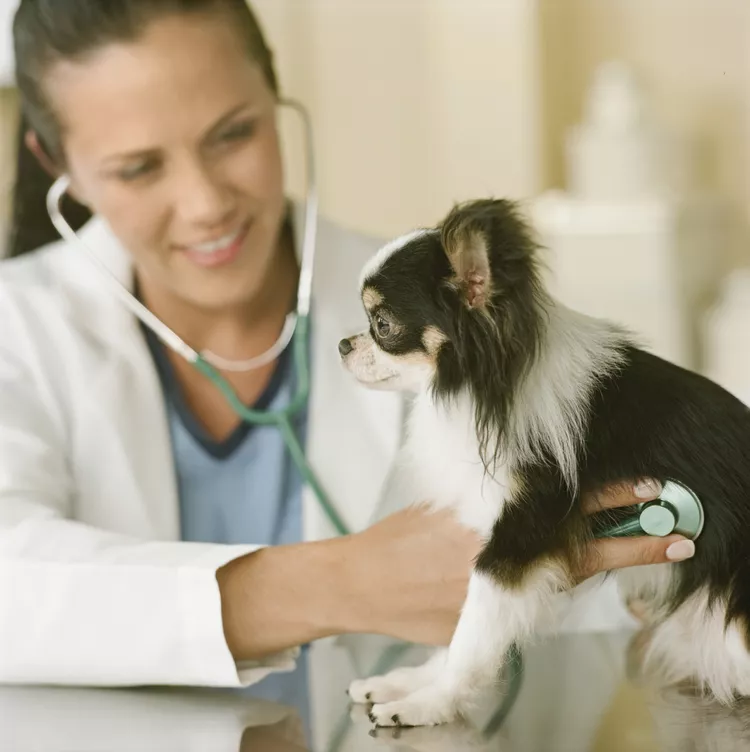
Dogs are less likely to suffer heart failure than humans. But, many of the same risk factors are involved and may increase the likelihood of an acute—and possibly fatal—cardiac event. These factors include obesity, diabetes, high blood pressure, poisoning, or serious bacterial infection. While there are many forms of canine heart disease, all can ultimately cause heart failure.
Heart failure is the result of severe cardiac disease that impairs the heart's blood flow and stops it from functioning. Blood flow is restricted and therefore unable to adequately supply the dog's organs with oxygen. Another form of heart failure, called congestive heart failure, happens when blood flow is constricted or blocked, so blood pools in the dog's body and organs.
Dogs with heart disease may be asymptomatic (free of any signs of illness) if the heart disease is mild enough to allow the heart and the rest of the body to compensate. However, if heart disease progresses without treatment, signs of heart failure will develop.
Heart failure can affect one or both sides of the heart, with some symptoms specific to the side that is damaged. While many of these symptoms can indicate other conditions, even the subtlest sign may indicate impending heart failure or congestive heart failure in a dog.
Right-sided heart failure results in a backup of blood, which accumulates in the abdominal and chest cavities, liver, and limbs. The pooling of blood may cause visible swelling in a dog's torso or legs.
In the case of left-sided heart failure, the blood returning from the lungs to the heart backs up, and fluid accumulates in the lungs. This causes the dog to experience labored breathing, tiredness or weakness, and coughing.
In some dogs, both sides of the heart fail, causing a combination of symptoms associated with unilateral failures.
Heart failure is a culmination of damage that occurs throughout heart disease progression. There are four distinct causes of acute heart failure, as follows:
The vet will probably want to rule out heartworms, and in addition to blood and urine tests, may order a chest x-ray and an ultrasound scan of the heart called an echocardiogram. An electrocardiogram (EKG) that measures your dog's heart rhythm can also be helpful. One or more of these tests will be necessary to determine what type of heart disease your dog has.
If caught in time, heart failure may be treated with a variety of drugs, based on the exact cause, manifestation, and severity of the particular case. Some medications can help the heart contract; others help widen blood vessels. Diuretic drugs can help a dog excrete accumulated fluid, relieving discomfort and pressure on the heart. Your veterinarian will establish a treatment plan that will require strict adherence to improve your dog's quality of life and reduce risks associated with some of the drugs that may be prescribed.
The prognosis for a dog with heart failure depends on the severity of its heart condition and associated health issues. A dog with advanced heart failure, obesity, and diabetes is unlikely to rebound fully. However, if the dog's heart is in the early stages of failure, and the owner is committed to improving the dog's health and fitness, then chances are good that the dog may enjoy a happy and fairly active life for months or years.
In some cases, heart failure can be avoided for months or even years if the underlying disease is managed using medications that improve heart function and reduce fluid build-up. Close monitoring is important because medication adjustments may be necessary over time.
The best way to prevent canine heart failure is to reduce its risk factors: Make sure your dog doesn't become overweight, and work with your vet to treat ongoing health conditions such as diabetes.
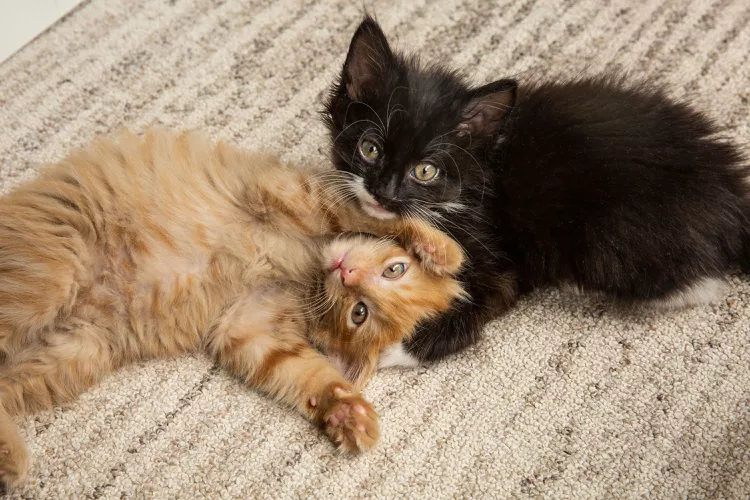
Why Two Kittens Are Better Than One
There are benefits of adopting two kittens, such as more feasible training and companionship between them.
Everything You Need to Know About Raising Your First Cat
Whether you are thinking about getting a cat or just adopted your first one, these are the things to know to make your relationship a lasting one.
How Can I Tell the Sex of a Cat?
Telling male and female cats apart can be difficult for those who don't know what they're looking for. Here are helpful tips to discover their sex.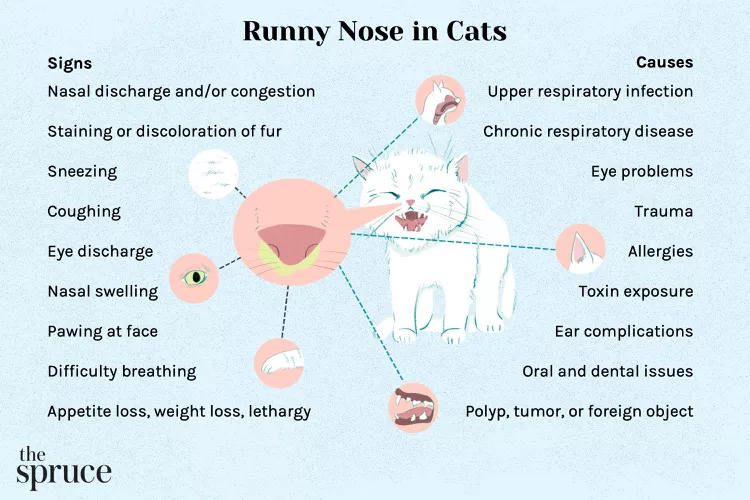
Runny Nose in Cats: Causes and Treatment
Cats get runny noses due to upper respiratory issues, but many conditions can cause this. Learn the causes of runny noses in cats and the associated signs. Find out how vets diagnose and treat cats with runny noses.
How Long Can You Safely Leave Canned Cat Food Out?
You cannot safely leave canned cat food out all day. Twenty to 30 minutes is the max, so give smaller portions and reheat food for later feedings.
Meat Byproducts in Cat Food
Most cat experts recommend premium brands of cat food that avoid ingredients like byproducts and chicken meal. Learn what to look for on the label.
How Much Wet Food to Feed a Cat Every Day
The amount of wet food your cat needs depends on factors such as age, weight, body condition, and lifestyle. Learn how much wet food to feed your cat.
Taurine for Cats
Taurine is an essential animal protein in your cat's diet. Learn more about the various ways it supports your feline's body.
The Different Types of Pet-Friendly Workplaces
Discover the different types of pet-friendly workplaces and the benefits they offer employees. Learn how to create a pet-friendly workplace and the best practices for pet owners.
8 Halloween Safety Tips for Pets
The spooky holiday can be overstimulating and even dangerous for pets. Here's how to avoid the problems caused by toxic candy and incessant doorbells.
Why You Should Keep Cooked Bones Away From Your Dog This Holiday Season
People should be aware of the dangers of cooked bones, especially around the holidays when they might be more accessible to your pup.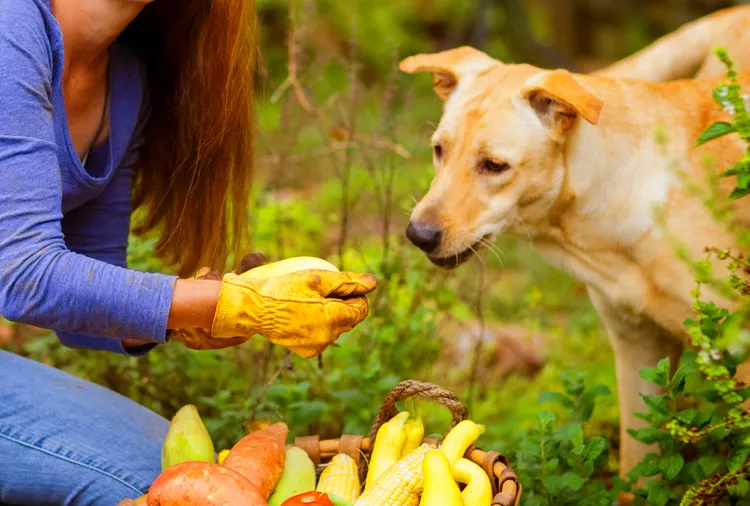
Can Dogs Eat Squash? Here's What a A Vet Thinks
Dogs can safely eat squash as long as it's prepared correctly. Find out how to properly feed this versatile fruit to your dog.
16 Small Cat Breeds That Are Petite Purring Machines
Small cat breeds like the Singapura and munchkin may be smaller than an average housecat, but they leave a giant imprint on your heart.
10 Best Cats With Big Ears
Cats with big ears often look extra endearing. Check out some common big-eared cats, including the Abyssinian, Devon Rex, Siamese, Sphynx, and more.
Javanese (Colorpoint Longhair): Cat Breed Profile, Characteristics & Care
The Javanese is a semi-longhaired, color-pointed cat of Siamese type. They are related to the Siamese, Colorpoint Shorthair, and Balinese breeds.
How to Stop Aggression in Dogs
Dog aggression can be a serious behavior issue for pet owners. Learn how to stop aggression in dogs before someone gets hurt.
Should Dogs Be Allowed on Furniture?
Should you let your dog on the couch or in the bed with you? Are there any reasons we should not let dogs on the furniture? Here's what to know.
Why Do Dogs Eat Rocks?
One of the most common non-food items for dogs to eat are rocks. Here's what to know about why dogs eat them and how can you stop your dog from eating rocks.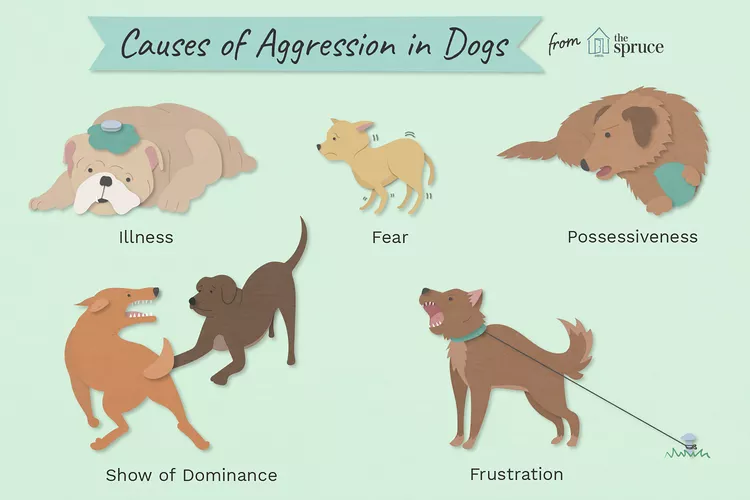
Why Dogs Get Aggressive and How to Stop It
Why is your dog biting you aggressively? Sometimes dogs can become aggressive with little warning. Find out what causes your dog to become aggressive so you can work with the behavior.
Thai Ridgeback: Dog Breed Characteristics & Care
Learn all about the Thai Ridgeback, a rare breed from Thailand. Find out how to care for the loyal dog and where to buy or adopt one.